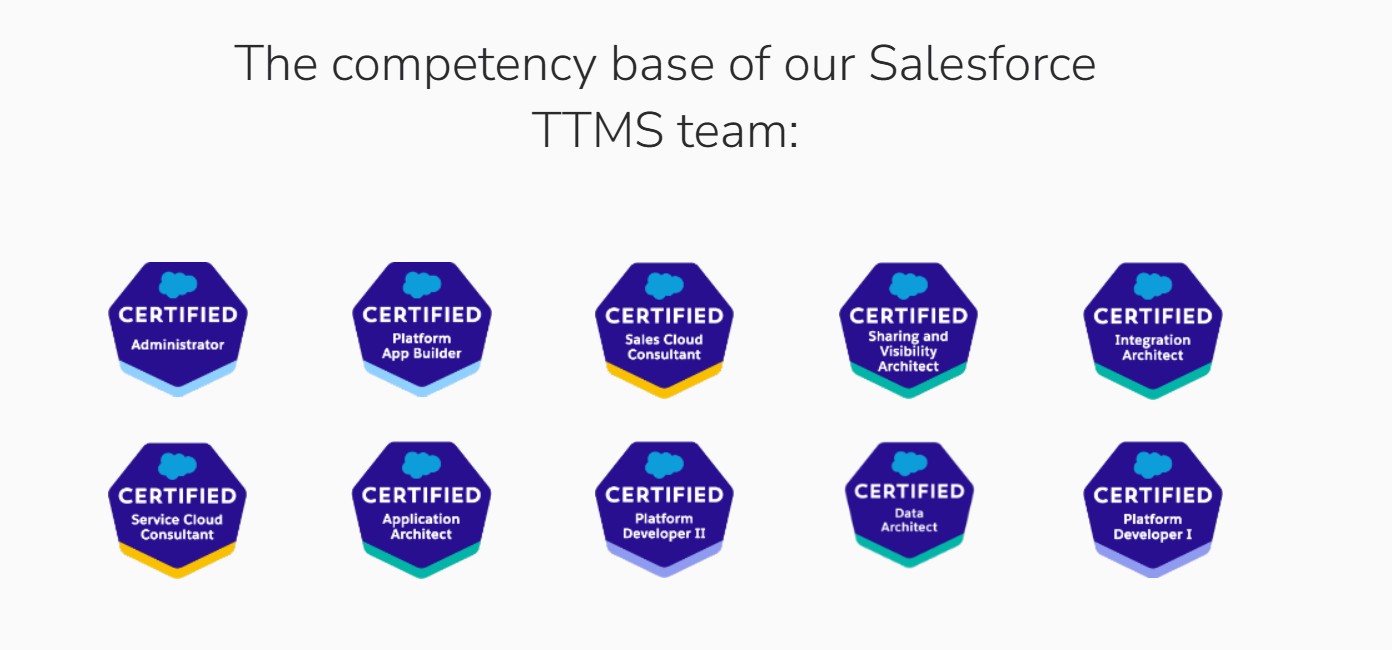
In 2025, Salesforce continues to redefine how organizations connect with customers across every stage of the journey — from lead generation to personalized engagement and long-term loyalty. Its marketing ecosystem, built around the powerful Marketing Cloud platform and Data Cloud foundation, now offers a unified approach for both B2B and B2C marketers. With new editions, smarter automation, and AI-driven orchestration, Salesforce enables marketing teams to move beyond one-size-fits-all campaigns toward real-time, data-powered experiences.
Whether you’re exploring Marketing Cloud for the first time or planning to upgrade your current setup, understanding the latest updates is key to making informed decisions. This guide breaks down Salesforce’s marketing platforms and editions, explains what’s new in 2025 — including the rise of AI agents and Marketing Cloud Next — and helps you identify which solution best aligns with your organization’s goals and marketing maturity.
1. Exploring Marketing Cloud Editions – What Each Edition Really Means For Marketing Managers?
Choosing the right Salesforce Marketing Cloud edition can be a challenge. Each version offers different capabilities that directly impact how marketing managers plan campaigns, engage customers, and measure results. Below, we break down the main editions and what they actually mean for day-to-day marketing operations.
1.1 Marketing Cloud Growth Edition
The Growth Edition is designed for organizations that want to get started with scalable, data-driven marketing. It provides the essentials to manage customer data, run targeted campaigns, and track performance without overwhelming complexity.
- Unified customer profiles for better audience segmentation
- Multi-channel campaign execution (email, SMS, push notifications)
- Automation tools for recurring campaigns
- Pre-built reporting dashboards
For marketing managers, Growth Edition is the right choice when the priority is building a strong foundation and achieving measurable results quickly.
1.2 Marketing Cloud Advanced Edition
The Advanced Edition builds on Growth by offering deeper personalization and AI-driven insights. It’s tailored for teams that already have experience with digital marketing and want to scale up sophistication.
- AI recommendations for personalization at scale
- Advanced analytics with deeper segmentation options
- Expanded automation journeys across multiple channels
- Integration with CRM and third-party apps for connected workflows
For managers, this edition means more control over audience targeting, richer insights, and the ability to deliver highly individualized customer experiences.
1.3 Marketing Cloud Engagement
Marketing Cloud Engagement focuses on email marketing at scale but extends well beyond simple campaigns. It’s ideal for global organisations who want to orchestrate customer journeys with precision.
- Advanced email design, testing, and personalization
- Journey Builder for cross-channel automation
- Real-time behavioral triggers (abandoned cart, product views, etc.)
- Deep analytics on engagement and conversions
This edition is a fit for organizations where email is still the primary revenue-driving channel but needs to be complemented by journey-based experiences.
1.4 Marketing Cloud Account Engagement (formerly Pardot)
Account Engagement is Salesforce’s B2B marketing automation solution. Unlike Engagement, it focuses on lead generation, nurturing, and aligning marketing with sales.
- Lead scoring and grading to prioritize prospects
- Automated nurture campaigns based on buyer stage
- Sales-marketing alignment with CRM integration
- Analytics on campaign ROI and pipeline contribution
For marketing managers in B2B organizations, Account Engagement means shorter sales cycles, more qualified leads, and measurable impact on revenue.
1.5 Marketing Cloud Engagement Plus (2025 upgrade)
The Engagement Plus edition, introduced in 2025, brings together the best of Engagement and Advanced capabilities. It’s designed for marketing teams ready to move toward real-time, AI-driven engagement.
- Hyper-personalization using AI models across all channels
- Real-time data activation for instant campaign adjustments
- Expanded capacity for automation and segmentation
- Deeper integrations with Commerce Cloud and Service Cloud
For managers, this upgrade means moving from campaign planning to always-on engagement — campaigns that adapt automatically to customer behavior, increasing both efficiency and ROI.
2. How to Choose the Right Edition
Picking the right edition is about fit — not feature envy. Use this quick decision flow as a guide:
- Are you B2B or B2C?
- B2B → Account Engagement (MCAE) or Growth if SMB B2B.
- B2C → Engagement or Engagement Plus for enterprise scale.
- How advanced are your marketing tools and data systems?
- Minimal data maturity → Growth Edition (fast setup + Data Cloud starter).
- Solid CDP and analytics → Advanced or Engagement Plus for maximum leverage.
- Do you need AI to run campaigns or to augment people?
- Tactical help (content ideas, personalization) → Growth/Advanced.
- Autonomous orchestration (agents acting across channels) → Marketing Cloud Next / Engagement Plus features.
- Budget & staffing constraints: factor in implementation costs, deliverability and creative resources, and ongoing platform admin. Growth reduces upfront lift; Advanced/Plus require more skilled operations.
If you’re still unsure about which edition to pick, contact us and schedule a free consultation where we’ll discuss your business needs.

3. The Future: Introducing Marketing Cloud Next
In June 2025 Salesforce unveiled Marketing Cloud Next — a reimagined, agentic marketing platform that aims to unify B2B and B2C marketing under a single, AI-native architecture. Built on the core Salesforce platform and Data Cloud, Next reframes marketing from campaign-driven playbooks to agentic marketing — where intelligent agents (Agentforce) autonomously plan, execute, and optimize outreach while preserving human oversight. The goal is two-fold: scale personalization in real time, and reduce the operational friction of multichannel orchestration.
Marketing Cloud Next’s tight coupling with Data Cloud removes many historical data silos. A single customer (or account) profile is accessible across B2B and B2C workflows, enabling unified identity, improved measurement, and faster experimentation. Practically, this reduces integration complexity and lets marketers move from “one campaign at a time” to continuous, cross-channel relationship-building.
3.1 AI and Agentforce
Agentforce is a set of AI agents that can draft campaign briefs, create journey templates, recommend audience segments, generate creative prompts, and — in some configurations — trigger and optimize campaign execution. For marketing managers this promises dramatic productivity gains: routine work gets automated, insights are surfaced continuously, and campaigns can adapt based on live data signals.
4. Strategic Impact: Why These Changes Matter
Salesforce’s unification and AI push are not just product updates — they change how marketing teams organize, measure, and scale. From where we sit, the strategic impacts fall into five practical categories:
4.1 Operational efficiency and cost-to-serve
Consolidating tooling reduces integration maintenance, duplicated data models, and the engineering cycles needed to keep disconnected systems speaking. For many clients we work with, this lowers ongoing TCO and frees engineering bandwidth for new features rather than housekeeping.
4.2 Faster time-to-market and campaign velocity
Pre-built journeys, templates, and agentic assistants compress the time required to launch tests and campaigns. This speed is especially valuable in retail, travel, or finance where promotional windows are short and reactive campaigns drive material revenue.
4.3 Measurable revenue alignment
When marketing systems natively understand accounts and opportunities (B2B) or unified customer lifetime value (B2C), it becomes easier to tie marketing activities to revenue metrics. That shifts marketing from “cost center” reporting to demonstrating direct ROI and influencing budgets.
4.4 Personalization at scale — and the supplier of complexity
The ability to personalize at scale increases relevance and LTV, but it also increases creative volume and governance needs. Organizations that succeed are those that pair personalization with content modularity and clear KPIs per segment.
4.5 Data governance, privacy, and regulatory compliance
Unified Data Cloud capabilities improve identity resolution but also centralize risk: a single customer profile used across channels must comply with GDPR, ePrivacy, CCPA, and sector-specific rules (finance, health, pharma).
5. Conclusion
Salesforce Marketing Cloud is entering a new era — one defined by data unification, AI-driven engagement, and continuous personalization. As features evolve and editions expand, the challenge for organizations is no longer access to technology, but using it strategically: choosing the right edition, connecting systems, and translating automation into measurable business outcomes.
At TTMS, we help companies navigate this complexity with a structured, value-first approach. Whether you’re starting with Marketing Cloud Growth Edition or preparing to move into AI-powered Engagement Plus or Next, our experts ensure that every step — from design to adoption — is aligned with your goals and delivers lasting ROI.
6. How TTMS Helps You Choose and Implement the Right Salesforce Solution
Selecting the right Salesforce edition is more than a licensing decision — it’s about matching your business goals with the right technology stack. At TTMS, we guide organizations through every stage of this process, ensuring that the chosen Salesforce Marketing Cloud solution delivers measurable business impact.

Why work with TTMS?
- Proven expertise – With years of experience in Salesforce consulting and implementation, we know how to tailor the platform to unique business needs.
- End-to-end support – From the first workshop to go-live and beyond, we support our clients with implementation, integrations, training, and managed services.
- Cross-industry knowledge – Our teams have delivered Salesforce solutions for industries such as retail, life sciences, finance, and non-profit, adapting best practices to different business models.
- Certified consultants – Our Salesforce experts are certified across multiple clouds, including Marketing Cloud, Sales Cloud, Service Cloud, and Experience Cloud.
- Scalable solutions – Whether your team is just starting with Growth Edition or planning to adopt Engagement Plus, we design roadmaps that evolve with your organization.
Our approach
We begin with an assessment of your marketing and sales processes to understand current challenges and long-term goals. Based on that, we recommend the most suitable Salesforce edition and define a clear implementation roadmap. Once in place, we integrate Salesforce with your existing ecosystem, ensure adoption across teams, and provide ongoing support to maximize ROI.
With TTMS as your Salesforce Consulting Partner, you don’t just get a platform — you get a strategic solution aligned with your growth plans.
Let’s talk about how we can help your organization unlock the full potential of Salesforce.
Contact us today to schedule a consultation with our Salesforce team.